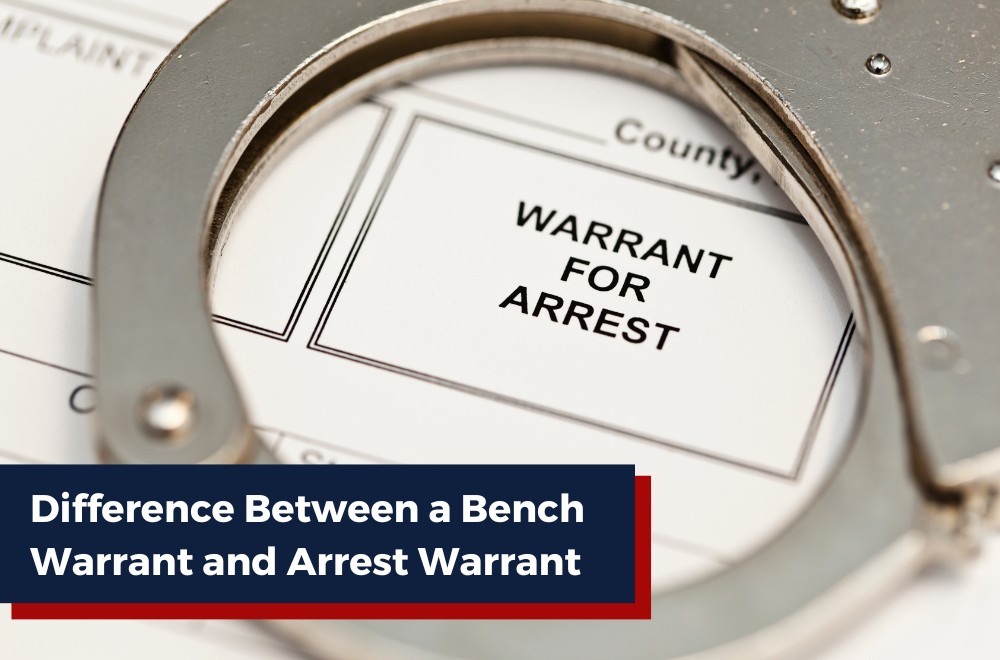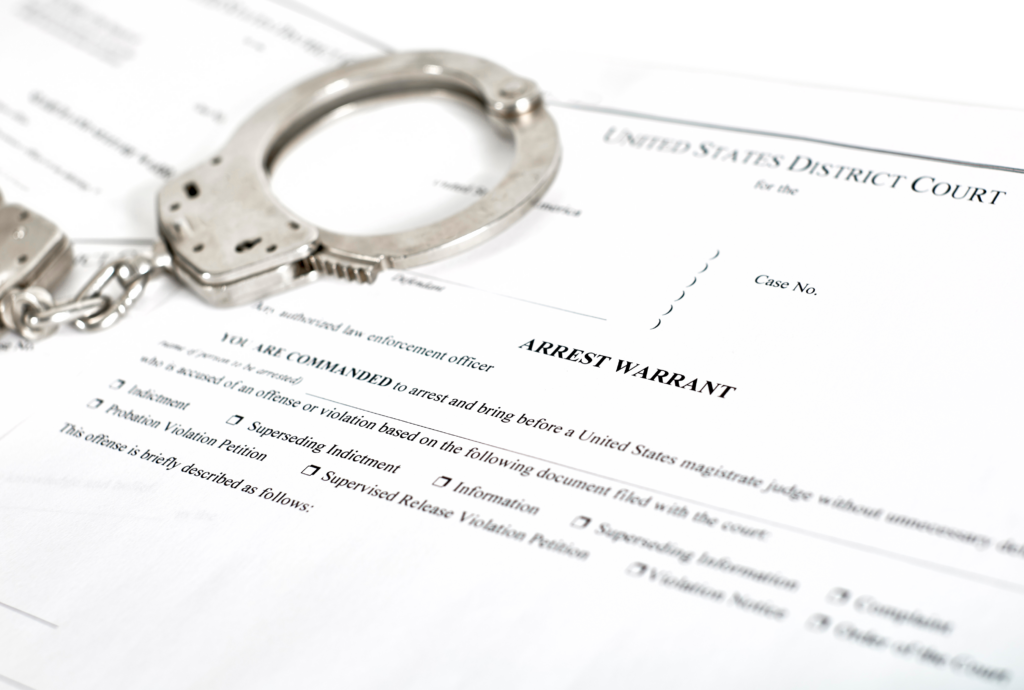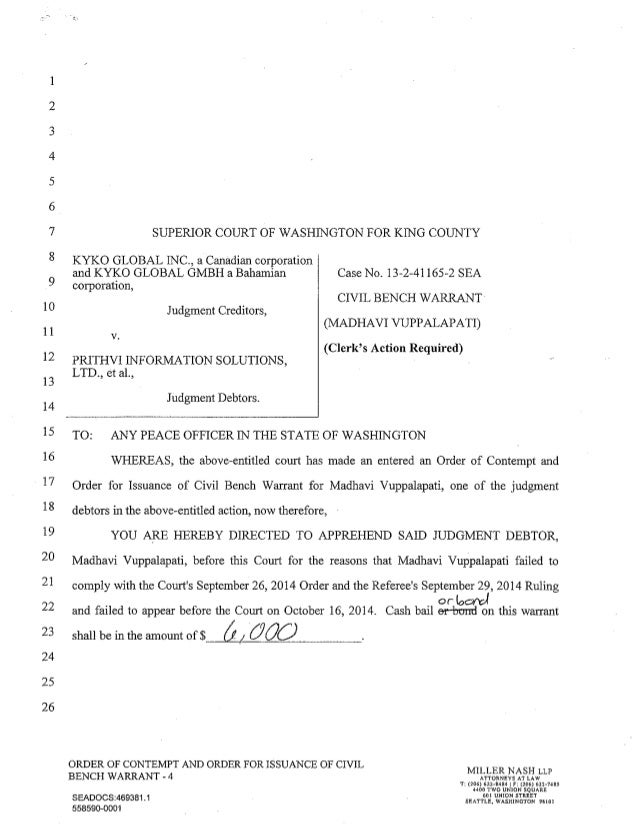Felony Bench Warrant - A bench warrant is an arrest warrant issued by a judge or court, most commonly when a defendant fails to appear at a scheduled court. Bench warrants are issued directly. Standard warrants are common in felony cases but may also apply to misdemeanors if justified. Like other arrest warrants, a bench warrant allows a police officer to take someone into custody to answer criminal charges. Understanding the differences between felony and bench warrants comes down to learning how they are generated. Failing to appear for court.
Understanding the differences between felony and bench warrants comes down to learning how they are generated. A bench warrant is an arrest warrant issued by a judge or court, most commonly when a defendant fails to appear at a scheduled court. Like other arrest warrants, a bench warrant allows a police officer to take someone into custody to answer criminal charges. Failing to appear for court. Bench warrants are issued directly. Standard warrants are common in felony cases but may also apply to misdemeanors if justified.
Standard warrants are common in felony cases but may also apply to misdemeanors if justified. Bench warrants are issued directly. Failing to appear for court. A bench warrant is an arrest warrant issued by a judge or court, most commonly when a defendant fails to appear at a scheduled court. Understanding the differences between felony and bench warrants comes down to learning how they are generated. Like other arrest warrants, a bench warrant allows a police officer to take someone into custody to answer criminal charges.
Bench Warrant
Failing to appear for court. A bench warrant is an arrest warrant issued by a judge or court, most commonly when a defendant fails to appear at a scheduled court. Like other arrest warrants, a bench warrant allows a police officer to take someone into custody to answer criminal charges. Bench warrants are issued directly. Standard warrants are common in.
Difference Between a Bench Warrant and Arrest Warrant
Understanding the differences between felony and bench warrants comes down to learning how they are generated. Failing to appear for court. A bench warrant is an arrest warrant issued by a judge or court, most commonly when a defendant fails to appear at a scheduled court. Like other arrest warrants, a bench warrant allows a police officer to take someone.
Bench Warrant PDF Bail Arrest Warrant
Standard warrants are common in felony cases but may also apply to misdemeanors if justified. Bench warrants are issued directly. Understanding the differences between felony and bench warrants comes down to learning how they are generated. Failing to appear for court. A bench warrant is an arrest warrant issued by a judge or court, most commonly when a defendant fails.
What's the Difference Between a Bench Warrant and an Arrest Warrant
Like other arrest warrants, a bench warrant allows a police officer to take someone into custody to answer criminal charges. Failing to appear for court. A bench warrant is an arrest warrant issued by a judge or court, most commonly when a defendant fails to appear at a scheduled court. Bench warrants are issued directly. Understanding the differences between felony.
Bench Warrant
Standard warrants are common in felony cases but may also apply to misdemeanors if justified. Like other arrest warrants, a bench warrant allows a police officer to take someone into custody to answer criminal charges. A bench warrant is an arrest warrant issued by a judge or court, most commonly when a defendant fails to appear at a scheduled court..
What Is A Bench Warrant In The Law at Kelsey Dougherty blog
A bench warrant is an arrest warrant issued by a judge or court, most commonly when a defendant fails to appear at a scheduled court. Like other arrest warrants, a bench warrant allows a police officer to take someone into custody to answer criminal charges. Standard warrants are common in felony cases but may also apply to misdemeanors if justified..
1 Warrant Guide (How to Find, Clear all Bench Warrants)
Standard warrants are common in felony cases but may also apply to misdemeanors if justified. Understanding the differences between felony and bench warrants comes down to learning how they are generated. Bench warrants are issued directly. Failing to appear for court. A bench warrant is an arrest warrant issued by a judge or court, most commonly when a defendant fails.
What is a Bench Warrant? Criminal Lawyer News
Like other arrest warrants, a bench warrant allows a police officer to take someone into custody to answer criminal charges. Bench warrants are issued directly. Failing to appear for court. Standard warrants are common in felony cases but may also apply to misdemeanors if justified. Understanding the differences between felony and bench warrants comes down to learning how they are.
Doc Felony Warrant at Wayne Wilson blog
Bench warrants are issued directly. Failing to appear for court. A bench warrant is an arrest warrant issued by a judge or court, most commonly when a defendant fails to appear at a scheduled court. Like other arrest warrants, a bench warrant allows a police officer to take someone into custody to answer criminal charges. Understanding the differences between felony.
Bench Warrant Issued by Chief Civil Judge of King County, Washington
Like other arrest warrants, a bench warrant allows a police officer to take someone into custody to answer criminal charges. Failing to appear for court. A bench warrant is an arrest warrant issued by a judge or court, most commonly when a defendant fails to appear at a scheduled court. Standard warrants are common in felony cases but may also.
Understanding The Differences Between Felony And Bench Warrants Comes Down To Learning How They Are Generated.
A bench warrant is an arrest warrant issued by a judge or court, most commonly when a defendant fails to appear at a scheduled court. Like other arrest warrants, a bench warrant allows a police officer to take someone into custody to answer criminal charges. Failing to appear for court. Standard warrants are common in felony cases but may also apply to misdemeanors if justified.









